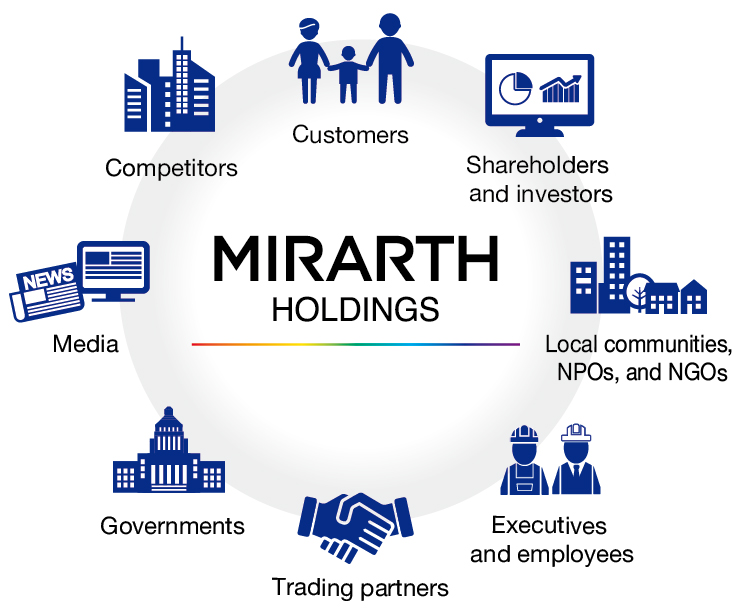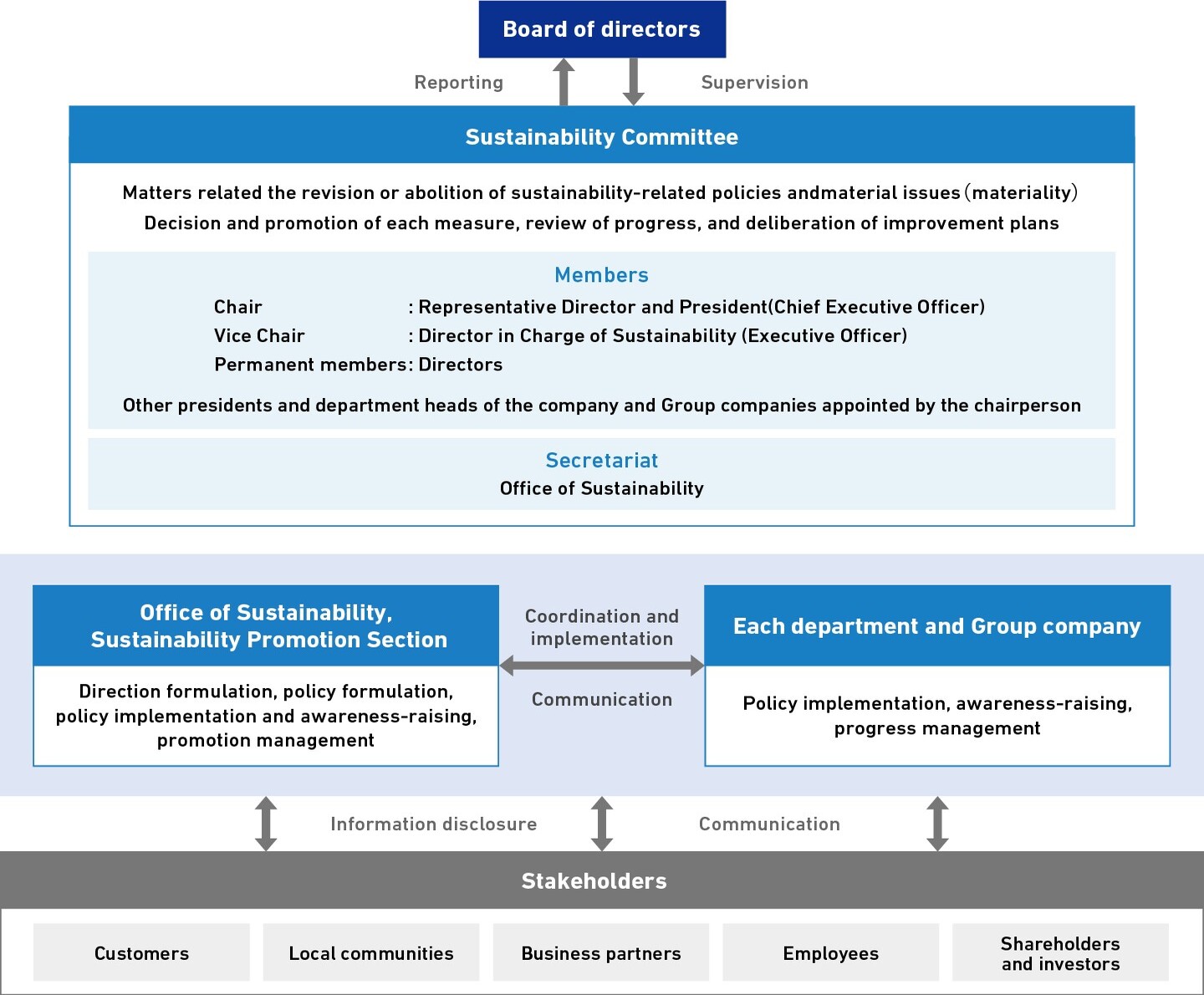Sustainability Management
Sustainability Basic Policy
MIRARTH HOLDINGS Group defines our Purpose as "To design sustainable environments for a happier future for both people and our planet." Guided by this Purpose, we are actively engaged in sustainability initiatives through our businesses, including housing development and renewable energy projects. Through these efforts, we aim to address social challenges and contribute to the achievement of the Sustainable Development Goals (SDGs), while earning the trust of various stakeholders and society at large as we pursue lasting growth.

Sustainability Promotion System
MIRARTH HOLDINGS Group has established a sustainability promotion system based on the recognition that “addressing issues surrounding sustainability, including consideration of climate change and other global environmental issues, respect for human rights, consideration of employee health and the working environment and fair and appropriate treatment of employees, fair and appropriate transactions with business partners, and risk management in the event of natural disasters are important management issues.”
The Sustainability Committee has been established, chaired by the Representative Director and composed of directors, presidents and division heads of Group companies. The Committee is responsible for promoting ESG strategies, determining policies and measures concerning sustainability, examining materiality (key issues) and promoting measures to address them, reviewing their progress, and deliberating on improvement plans.


